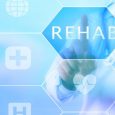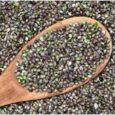If you’re concerned about atrial fibrillation, there are a few key causes and risk factors to understand. What can trigger atrial fibrillation varies from person to person, but reducing the likelihood of heart conditions is very important for overall health.

Read on to learn more about what can trigger atrial fibrillation and how to prevent it.
What Is Atrial Fibrillation?
Atrial fibrillation is an irregular heartbeat. Afib heart rates vary for everyone, but typically the heart beats too quickly or slowly. An afib heart condition is dangerous because it can increase your risk of other heart-related issues that can be life-threatening, like heart attacks, blood clots, and strokes.
Is Afib Considered Heart Disease?
Atrial fibrillation is a heart arrhythmia, which is considered to be a condition of the heart.
Restoring the heart to a normal rhythm is critical for combatting atrial fibrillation. See here for more information on how to handle atrial fibrillation and make a treatment plan for a healthy and long life.
What Can Trigger Atrial Fibrillation?
Physical and mental factors can affect your likelihood of developing Afib. Here are some common and not so common triggers of Afib.
Extreme Stress
Mental health is just as important as physical and often go hand in hand. In a 2011 study, it was discovered that job-related stress increases the risk of atrial fibrillation by 50%.
Other mental health strains like anxiety and depression play a role too. Your heart is more likely to experience a variance in heartbeat patterns if you have racing anxious thoughts or feel down.
Environmental Factors
It’s no secret that air pollution has an impact on our respiratory health, but many people are not aware that it can affect your heart as well.
A 2019 study showed that long-term exposure to air pollution, even at low levels, can increase stroke and episodes of atrial fibrillation.
High-Intensity Workouts
While exercise is important, strenuous exercise that pushes your heart rate too high can negatively affect the body. Frequent distance running or hiking can have this effect.
To have a healthy exercise routine, talk with your doctor about what’s best for your body. Yoga, walking, and moderate hikes can be very beneficial for overall health and preventing atrial fibrillation.
Unhealthy Diet
An unhealthy diet is at the root of many heart conditions. Alcohol and caffeine can increase the effects of atrial fibrillation and increase episodes of heart palpitations.
To prevent atrial fibrillation, it’s important to eat a rounded heart-healthy diet of vegetables, fruits, grains, and lean proteins.
What Is Afib to You?
Now that you know what can trigger atrial fibrillation, check in with your doctor about minimizing your risk. If you have symptoms, even if it’s only sometimes, it’s very important to tell your doctor and make a plan for exercise, a healthier diet, and stress management.
For more on overall health, fitness, and making healthy food choices, check out our website.




